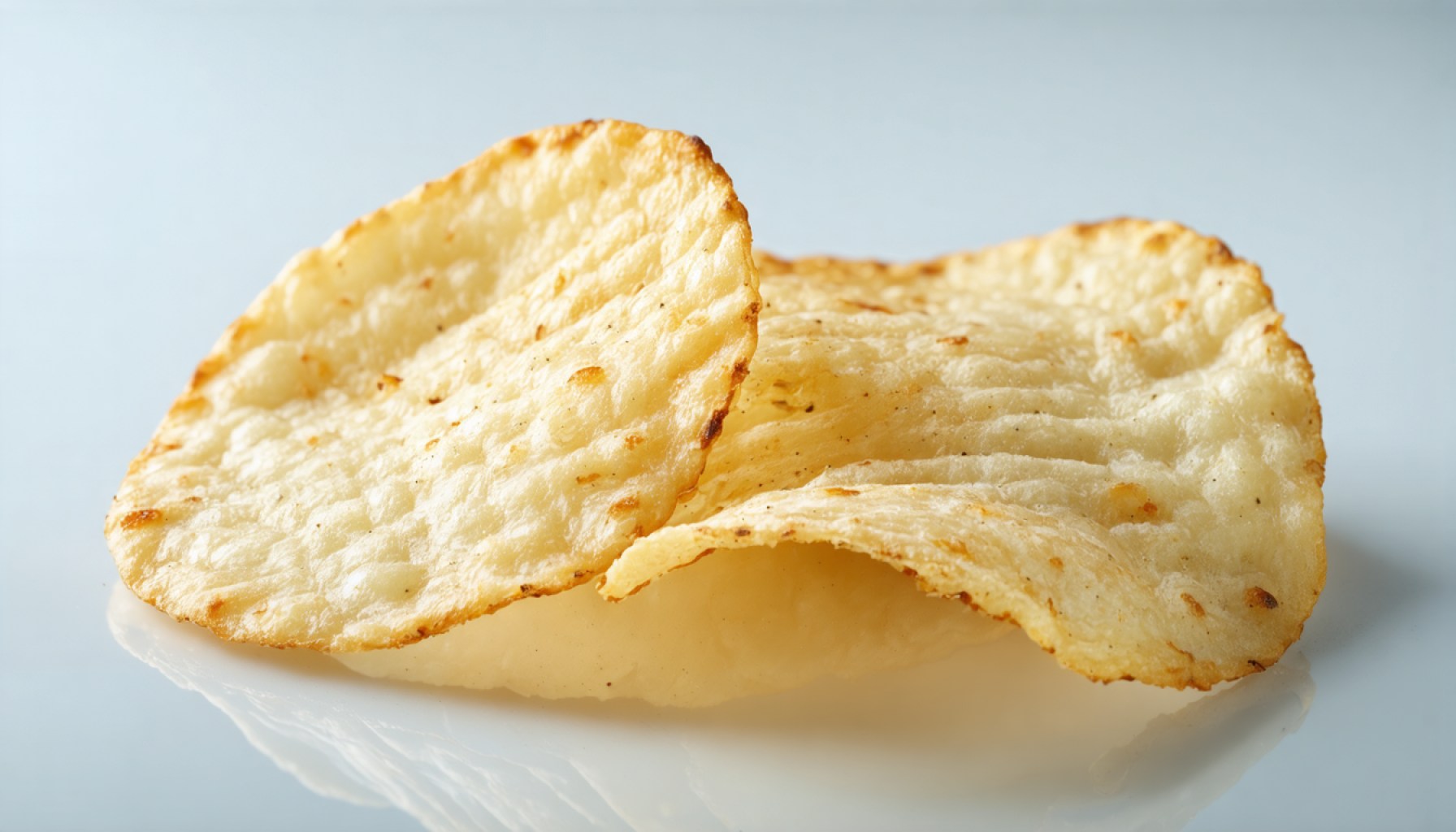- Alnatura has issued a recall of its delicately salted potato chips due to potential contamination with wood pieces, posing a health risk.
- Consumers are urged to return the affected chips to the point of purchase for replacements.
- The recall highlights the importance of scrutinizing product safety and the prevalence of foreign object contamination in foods.
- Potential health risks include internal injury, with remedies like first-aid or contacting emergency services being vital in case of ingestion.
- The incident serves as a reminder of the need for consumer vigilance and the challenges even reputable brands face in ensuring product safety.
- The situation underscores the broader issue of food safety, echoing past recalls related to contaminants and mislabeling.
Beneath the warm glow of Kassel’s bustling markets, news of an urgent warning has left conscientious shoppers in a flurry. Alnatura, a name synonymous with organic integrity, has issued a recall that has shaken the aisles of consumer trust. The esteemed purveyor of organic goods has found itself entangled in a safety alert over one of its most popular snack items.
The culprit? Alnatura’s delicately salted potato chips, marked by a production date that promised fresh flavor until the autumn of 2025. Consumers beware: these crunchy delights potentially harbor unwelcome additions—pieces of wood—that could send your taste buds recoiling and lead to dire consequences for your health.
It’s a stark reminder of the hidden hazards that can infiltrate everyday products. Such intrusions, whether shards of glass, metal splinters, or—as in this instance—wood chips, are not just culinary faux pas but harbingers of potential harm. Should an errant chip splinter lodge where it ought not to be, the risk of internal injury and hindrance of life’s breath looms large.
Responsibly addressing the matter, the organic food trailblazer advises vigilance. Those with the potato chips in question are urged to thwart potential calamity by returning them to the point of purchase. Alnatura ensures that affected customers will receive replacements, thus reinstating a fragment of peace of mind amidst this crispy conundrum. The chips traversed various German states, a testament to Alnatura’s wide distribution web.
The issue of foreign objects in foods isn’t foreign to the industry. We’ve seen other recalls, from salmonella-laden delicacies to allergen mislabeling blunders, but each serves as a cautionary tale to consumers to double-check the data printed oh-so-innocently on packaging. The last thing we want at our tables is a surprise with splinters.
For those finding themselves in an unfortunate snack-induced predicament, familiarity with first-aid can be life-saving. A productive cough may expel a lodged object; failing that, strategic back slaps or the Heimlich maneuver could be necessary. Immediate remedies or the comforting voice of emergency services at 112 might be the nightingale that ushers relief.
This episode, poignant in its simplicity, underscores the vigilance needed in our consumer choices and the omnipresent watchfulness required to ensure the safety of what we bring home. As awareness spreads, let it serve as a beacon—a reminder that even the most trusted brands can stumble, urging us always to look a little closer.
Alnatura’s Potato Chips Recall: What You Need to Know and How to Stay Safe
Understanding the Alnatura Recall
Alnatura’s recent recall of its delicately salted potato chips due to contamination with wood pieces highlights the potential risks hidden within everyday consumables. As a well-regarded brand, Alnatura’s proactive recall emphasizes both its commitment to consumer safety and the necessity for ongoing consumer vigilance.
How to Handle Recalled Products
Steps to Follow if You Have Recalled Alnatura Chips:
1. Do Not Consume: Avoid eating the product immediately to prevent potential health hazards.
2. Check Labels: Confirm the production date to ensure it matches the updated recall notice.
3. Return the Product: Take the chips back to the store or point of purchase for a replacement or refund.
4. Stay Informed: Look for updates from Alnatura regarding any progress or additional recalls.
Broader Industry Context
Real-World Use Cases and Industry Trends
– Food Safety Standards: The food industry continues to grapple with issues of contamination. Clean label demands from consumers have led companies to increase transparency about production processes and ingredient sourcing. This incident underlines the need for robust quality control measures.
– Recalls as Learning Opportunities: Companies can use recalls as opportunities to improve manufacturing practices and prevent future issues, maintaining public trust in their products.
Controversies and Limitations
– Global Supply Chains: As brands expand their reach, maintaining consistent quality checks across multiple markets becomes increasingly complex, often leading to such recalls.
– Brand Impact: Continued incidents can affect a brand’s reputation and customer loyalty significantly, highlighting the thin line companies walk between trust and trepidation.
Safety Precautions and First Aid Tips
How to Address Foreign Objects in Food:
– Recognize the Signs: If you suspect ingesting a foreign object, watch for signs like coughing, throat discomfort, or difficulty breathing.
– Immediate Actions: Encourage coughing or gently slap the back in upward motions to expel the object. Perform the Heimlich maneuver if necessary.
– Seek Medical Help: Contact emergency services if the object cannot be expelled.
Insights and Predictions
– Improved Detection Technologies: Expect more advanced quality intervention mechanisms like AI-powered inspections to reduce the risk of contamination.
– Regulatory Changes: Stricter regulations may be instituted in response to public safety outrage and the frequency of such recalls.
Actionable Recommendations for Consumers
1. Stay Updated: Regularly check recall notices from reliable sources like the Food Safety Authority or Alnatura’s official updates.
2. Consumer Advocacy: Report any adverse findings or experiences with products to local consumer protection agencies.
3. Educational Awareness: Keep informed about simple first-aid techniques to handle choking hazards or foreign object ingestion.
Related Resources
For more information about product safety and updates, visit the Alnatura website or consult local food safety authorities.
Staying informed and prepared can transform inadvertent culinary mishaps into manageable inconveniences, fortifying trust between consumers and their chosen brands.
